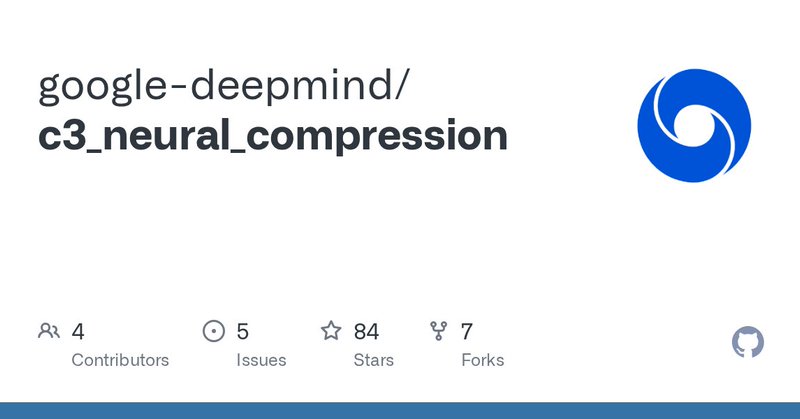
Emilien Dupont
@emidup
Followers
2K
Following
186
Media
31
Statuses
93
phd student in machine learning @oxcsml @UniofOxford 🐳 previously research intern @Apple, computational maths @Stanford, theoretical physics @imperialcollege
California, USA
Joined October 2017
RT @jeanfrancois287: 📢New Paper on Reward Modelling📢. Ever wondered how to choose the best comparisons when building a preference dataset f….
0
9
0
RT @stepjamUK: 🚨Important update from our Robot Learning Lab in London. Following recent news, we’re moving on after a wonderful 2 years….T….
0
38
0
For technical details, please refer to the paper and code. 📜: 🧑💻: ⚙️: We hope this is a step towards making neural codecs a practical reality ✨.
github.com
Contribute to google-deepmind/c3_neural_compression development by creating an account on GitHub.
1
0
5
Work done with the amazing @ber24, @BarekatainAmin, @SashaVNovikov, @matejbalog, @Mpawankumar123, @franciscuto, @JSEllenberg, @PengmingWang, Omar Fawzi, @pushmeet, @AlhusseinFawzi!.
0
0
1
We present #FunSearch in @Nature today - a system combining LLMs with evolutionary search to generate new discoveries in math and computer science! 👩🔬🔬✨.
Introducing FunSearch in @Nature: a method using large language models to search for new solutions in mathematics & computer science. 🔍. It pairs the creativity of an LLM with an automated evaluator to guard against hallucinations and incorrect ideas. 🧵
3
4
45
RT @itsbautistam: Introducing Manifold Diffusion Fields (MDF), our new work on learning generative models over fields defined on curved geo….
0
28
0
RT @hyunjik11: Drop by our #ICLR2023 workshop tmrw (Thurs) on "Neural Fields Across Fields: Methods and Applications of INRs"!.Schedule: ht….
sites.google.com
Schedule (Rwanda Time GMT+2) Room MH4 (room used for main conference poster sessions). 09:40 - 09:45 Introduction and opening remarks 09:45 - 10:00 Contributed Talk 1: Peter Yichen Chen, "Simulating...
0
10
0
RT @schwarzjn_: Very happy to announce that our latest paper on Neural data compression with INRs, Meta Learning & Sparse Subnetwork select….
0
14
0
RT @hyunjik11: Previously we had introduced *functa*, a framework for representing data as neural functions (aka neural fields, INRs) and d….
0
36
0






